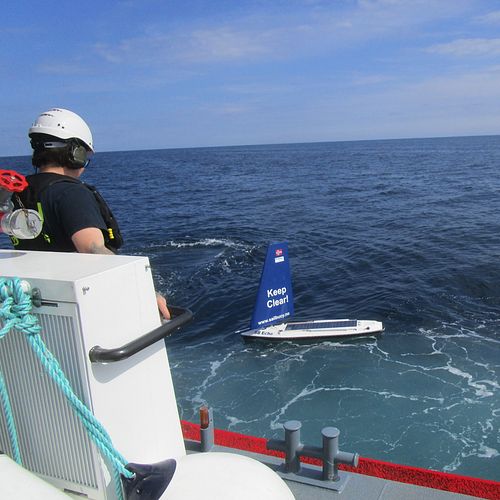31 March 2025 news
Observing air-sea interactions on a global scale is essential for improving Earth system forecasts. These exchanges are however challenging to quantify. The reasons for this are extreme conditions, remote and under-sampled locations, requirements for the study of a multitude of co-located variables, and high variability of fluxes in space and time. A new publication with contributions from Akvaplan-niva scientists, presents Uncrewed Surface Vehicles (USVs) a solution for measuring these crucial air-sea interactions.
Powered by renewable energy (e.g., wind and waves for propulsion, solar power for electronics), USVs have provided navigable and persistent observing capabilities over the past decade and a half. A team of scientists has reviewed 200 USV datasets and 96 studies and they found that USVs have observed a total of 33 variables spanning physical, biogeochemical, biological and ecological processes at the air-sea transition zone. In the publication from the study the team presents a map showing the global proliferation of USV adoption for scientific ocean observing.
This review, carried out under the auspices of the ‘Observing Air-Sea Interactions Strategy’ (OASIS), makes the case for a permanent USV network to complement the mature and emerging networks within the Global Ocean Observing System (GOOS). The Observations Coordination Group (OCG) overseeing GOOS has identified ten attributes of an in-situ global network. Here, the scientist evaluates the maturation of the USV network towards meeting these attributes and the work may form the basis of a roadmap to formalise and guide the global USV community towards a novel and integrated ocean observing frontier.
Download the full article here: Frontiers | Uncrewed surface vehicles in the Global Ocean Observing System: a new frontier for observing and monitoring at the air-sea interface

